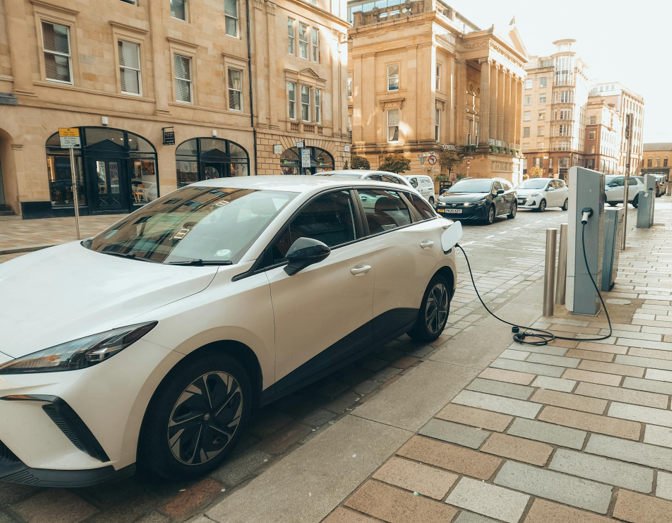What springs to your mind when envisaging the cars of the future? As a rule, most people envision greater sustainability, comfier interior designs, and enhanced mobility, especially when it comes to long-term journeys. However, the list of possibilities is far from limited to these options.
A bit of history: not long ago, in 1886, the first car was introduced. Since then, the automotive industry has never ceased to amaze us with its rapid progress.
Over the past 137 years, automobiles have evolved considerably from simple three-wheeled carriages to cutting-edge electric vehicles, getting the proper places in our travel routine.
Today, the automotive industry is developing at an astounding rate. Therefore, the future of transportation promises many exhilarating innovations and technologies that, just a few decades ago, seemed to belong to a distant future or science fiction.
Top-notch engineers from around the world are tirelessly forging ingenious developments across several areas. These advancements add greatly to vehicle autonomy, improve safety, reduce environmental impact, and promote better interaction among road users to add to the appreciation of the environment while traveling.
In this article, we will delve deeper into sustainable driving trends for travel that await us shortly.
Environmental Friendliness and Sustainability
Every year, electric cars are gaining more and more fans in the whimsical world. Reducing dependence on internal combustion engines coupled with a positive impact on the environment are crucial factors that indicate that this trend will pick up the threads. The latest advancements are actively carried out to improve batteries, which will allow for increased driving range on a single charge and reduce charging time. In general, the further development of electric cars is also evidenced by the fact that from 2035 onwards, Europe will completely ban the sale of diesel and gasoline cars on its territory.
However, electric cars are not the sole alternative to gasoline and diesel engines. To reduce the impact of cars on the environment, diverse environmental technologies may be used in the future, which include the use of alternative fuels, hydrogen engines, and improved exhaust gas purification systems to minimize emissions. In particular, hydrogen cars could become a viable option for environmentally friendly transport in the future. It is expected that they will use hydrogen as an energy source and emit only water vapor during operation.
Smart Cars
With the introduction of artificial intelligence (AI) and the Internet of Things, cars of the future can become “smart” machines. These vehicles could predict traffic patterns, optimize routes, recognize emotions, adapt to personal driving styles, and even interact with other cars and infrastructure on the road. Imagine, for instance, a car that slices through the air like a dolphin ‒ AI can make everything possible.
Additionally, artificial intelligence will play an important part in diagnostics and maintenance and will be implemented to analyze data from car sensors and systems to facilitate diagnostics, predict malfunctions and plan regular maintenance with customer focus in mind.
Efficient Energy Management Systems
Scientists are actively working on the development and integration of intelligent energy management systems into vehicle design. This will allow for the optimal use of energy from various sources, including batteries, generators, recuperation during braking, and others. Such innovations can significantly enhance energy efficiency and save money on fuel which is a huge benefit for those voyaging a lot.
Furthermore, research is underway to explore the possibility of using alternative energy sources. If successful, the transportation of the future will be able to charge while in motion, for example, using solar panels mounted on the roof.
Virtual Reality

Augmented reality (AR) and virtual reality (VR) can revolutionize the way information is perceived inside vehicles. The driver will get access to real-time data about the route, speed, direction of travel, obstacle warnings, additional navigation, and entertainment through special devices or directly projected on the windshield. These features make your vehicle incredibly user-friendly while leveraging smart technology and personalizing your travel experience.
3D Printing
Soon, 3D printing technology could transform the way cars are manufactured by enabling the creation of complex parts. This innovation will help reduce production costs and allow for flexible customization of cars tailored to individual user needs.
Nobody knows what lies ahead but the future holds a plethora of great conveniences. For instance, commodities market is on the cusp of popularity, granting huge benefits for the traders.
Vehicle-to-vehicle (V2V) Communication
Vehicle interaction is no longer an ephemeral fantasy; it may become a standard feature of the future. Innovative technologies such as V2V will allow cars to exchange information about speed, trip directions, road conditions, and other parameters.
Over and above that, the development of smart cities and roads promises to transform cars into fully autonomous vehicles, that match even the most perplexing journey routes. Road object warning systems, traffic light optimization, and charging stations for electric vehicles are awaited to significantly simplify the lives of vehicle owners.
Autonomous Driving
The development of autonomous driving systems in the future can turn cars into full-fledged autonomous vehicles. With the help of sensor systems, artificial intelligence, and special algorithms, the cars will be able to drive independently, detect obstacles, and ensure safety on the road without passenger intervention, everything to relish every moment of your trip.
Visited 7 times, 1 visit(s) today

